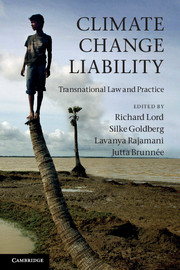Book contents
- Frontmatter
- Contents
- Contributors and Editorial Board members
- Foreword
- Acknowledgements
- Abbreviations
- Part I Legal, scientific and policy aspects
- Part II National laws
- Asia and Pacific
- Africa and the Middle East
- Europe and Eurasia
- 14 European Union Law
- 15 Germany
- 16 Poland
- 17 England
- 18 Russia
- North America
- Central and South America
- Selected resources
- Index
- References
15 - Germany
from Europe and Eurasia
Published online by Cambridge University Press: 05 June 2012
- Frontmatter
- Contents
- Contributors and Editorial Board members
- Foreword
- Acknowledgements
- Abbreviations
- Part I Legal, scientific and policy aspects
- Part II National laws
- Asia and Pacific
- Africa and the Middle East
- Europe and Eurasia
- 14 European Union Law
- 15 Germany
- 16 Poland
- 17 England
- 18 Russia
- North America
- Central and South America
- Selected resources
- Index
- References
Summary
Introduction
15.01Section A of this chapter provides an overview of the German legal system and facts and figures relevant to climate change. It also gives an overview of German climate change policy and the legal instruments that have been introduced to combat global warming. Given Germany’s membership of the EU, it should be noted that there will inevitably be a certain degree of overlap with the chapters in this volume relating to other EU Member States. The section does not cover German measures to deal with the effects of climate change. Section B focuses on public law, with a particular focus on how to: (i) enforce existing law (including through the adoption of climate-friendly discretionary decisions); (ii) make existing law stricter; and (iii) force the government to legislate. Section C looks at private law in the field of climate change, focusing on tort law and possible causes of action as there is no case law on the subject to date. Section D focuses on information law. Section E provides a brief conclusion.
The German Legal System
15.02As a member of the EU, Germany must abide by EU law. The country is a federal constitutional democracy and its Constitution or ‘Basic Law’ (Grundgesetz, GG) has played a major role in political and legal developments since its creation after World War II. It contains a set of basic human rights (Articles 1–20 GG). While there is no specific ‘environmental right’, the State has expressed an aim to protect the environment in Article 20a GG. The basic rights are well entrenched in the German legal system as a whole, but there is no distinct area that could be termed ‘Human Rights Law’. Rather, every administration, court and legislator is directly bound to give effect to the basic rights. The rights even regulate relationships between private persons or entities to a certain degree.
- Type
- Chapter
- Information
- Climate Change LiabilityTransnational Law and Practice, pp. 376 - 416Publisher: Cambridge University PressPrint publication year: 2011
References
- 2
- Cited by



